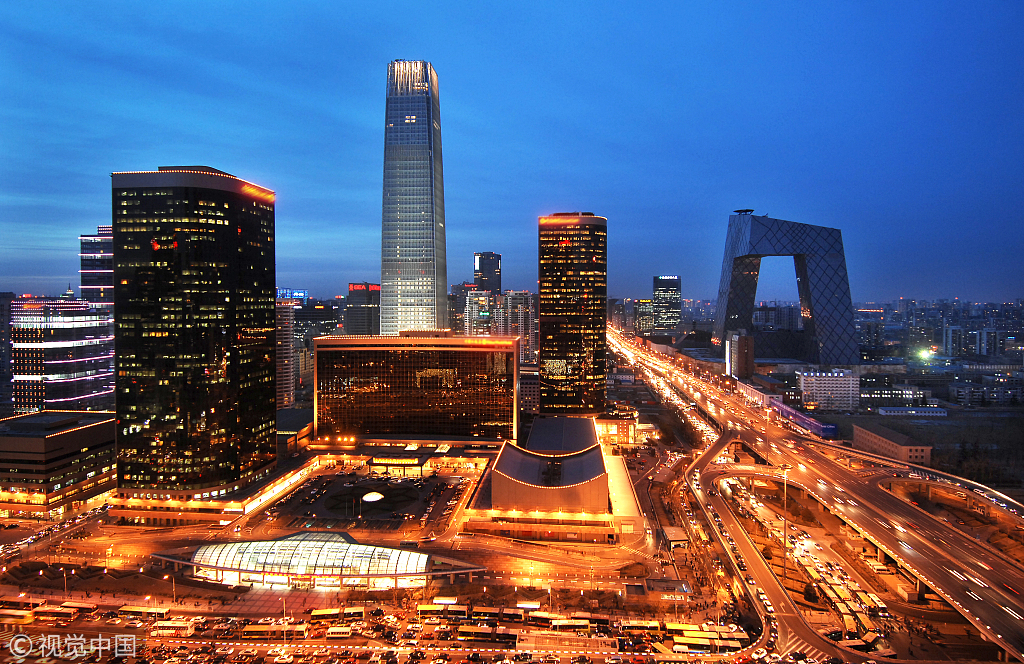It's vital to improve business environment


From the real economy's perspective, China's economic growth remains within a reasonable range, with the economic growth this year expected to be more than 6.5 percent.
However, despite the stable economic operations, and the unemployment rate being a relatively low 4.9 percent and the consumer price index being below 2 percent, the national economy faces increasing pressure, especially because of the uncertainty the Sino-US trade conflict has created.
The stock market, in particular, has adopted a cautious attitude toward the Sino-US trade friction since its full impact on the economy is not yet known. If the trade friction continues for a long time, it could have a big impact on China's industrial chain and technology sector, as well as the yuan's exchange rate.
Besides, since the costs of labor, financing and raw materials for private enterprises, especially small and medium-sized enterprises, have been growing, and enterprises' tax burden is comparatively heavy, enterprises' profits have fallen dramatically.
Still, the Chinese economy has great potential. So, given that China's middle-income group is massive and growing, and industrialization, informatization and marketization hold lots of promises, the authorities should accelerate the building of a modern economic system.
China's business environment has greatly improved in recent years, a precondition for promoting high-quality development. According to the World Bank's Business Environment Report, China's business environment ranks 46 among 190 economies, though it has a lot of room for improvement.
To create a business environment that offers free and fair competition, the authorities, among other things, have to ease enterprises' tax burden, and raise the level of public services and intellectual property rights (IPR) protection to international standards, and treat all the market players equally.
Improving the relationship between the government and the market is one of the most effective ways of improving the business environment. As such, the government should reduce its direct interference in the market and instead improve its services.
First, the government should deepen administration reform and delegate power to the lower levels, broaden market access by removing the obstacles, and deepen the Chinese economy's connections with the international market.
Second, IPR protection should be strengthened and measures taken to improve the market-based distribution of production factors. Also, the authorities should adopt the competitive neutrality principle to treat the State-owned enterprises, private enterprises and foreign enterprises equally, and strengthen IPR protection to vitalize the intellectual property market.
Third, the selective industrial policy should be changed to a functional industrial policy. And instead of focusing on a specific industry, specific enterprise or specific region, the industrial policy should support specific functions that benefit all sectors-from traditional industries to emerging industries, private enterprises to SOEs, and domestic enterprises to foreign enterprises.
Fourth, the authorities should expedite the process of improving the technological capacity, cultivate new economic driving forces, create a free market environment, and encourage innovation and exploration. And apart from improving the distribution of science and technological funds and enhancing human capital investment, performance evaluation, supervision and auditing, the government should also deepen SOEs' and scientific research institutions' reform to further promote innovation.
Fifth, the Chinese economy should be further opened up, in order to build a high-quality market economy, which in turn should focus on expanding trade and investment, and strengthening liberalization. Increasing trade and investment will benefit China, as in the first half this year, it attracted more foreign investment than the United States, reflecting the huge advantage the Chinese market still enjoys.
And sixth, the government should curb the rising housing prices and better meet the people's housing demand, by ensuring that the real estate market follows the principle that housing is for living in, not for speculation.
It should also support enterprises to build more housing units, so as to meet the market demand and promote the healthy development of the housing market.
Moreover, the government should make preparations for a possible long-drawn Sino-US trade conflict while remaining optimistic about the Chinese economy's long-term potential. If the government continues improving the business environment, it could transform the external pressures into an internal economic driving force, which would propel the Chinese economy on the path of high-quality development.
The author is the vice-president of National Academy of Economic Strategy, Chinese Academy of Social Sciences.


































